
Free Download Programming Fundamentals using C Notes in pdf – Bca 1st Semester. High quality, well-structured and Standard Notes that are easy to remember.
Welcome to Bcanpm.com
Bcanpm provides standard or well-structured Notes for Bca students. The notes are free to download. Each semester notes of Bca are available on www.bcanpm.com. In this post you can download Programming Fundamentals using C notes(C1). All units are available to download for free.
Programming Fundamentals using C Notes Unit 1 – 5
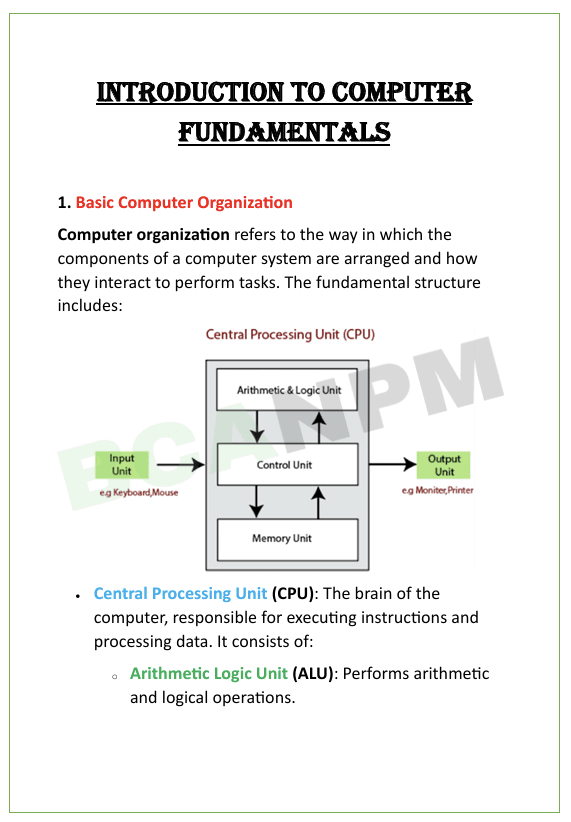
Unit 1: Introduction to Computer Fundamentals
“Computer Fundamentals” refers to the basic concepts and components that make up a computer system.
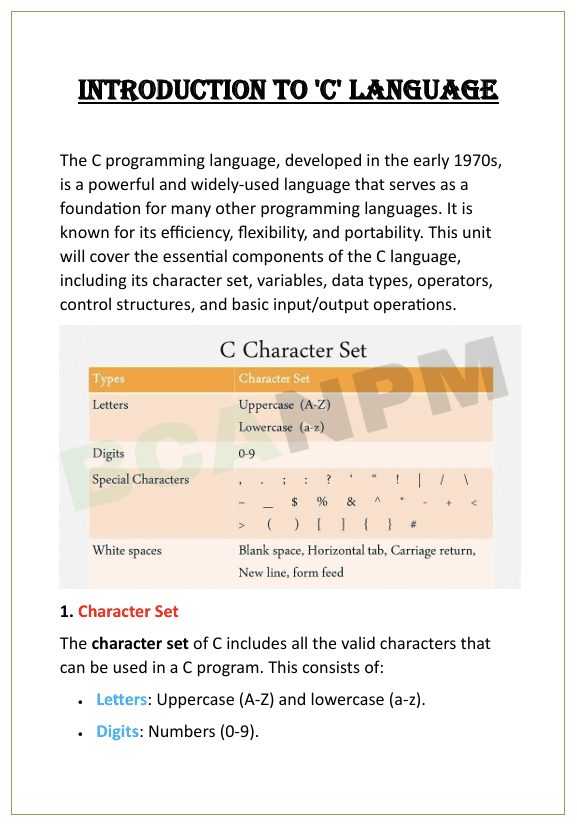
Unit 2: Introduction to 'C' Language
The “C programming language”, developed by Dennis Ritchie in the early 1970s, is a powerful, general-purpose language known for its efficiency and control over system resources.
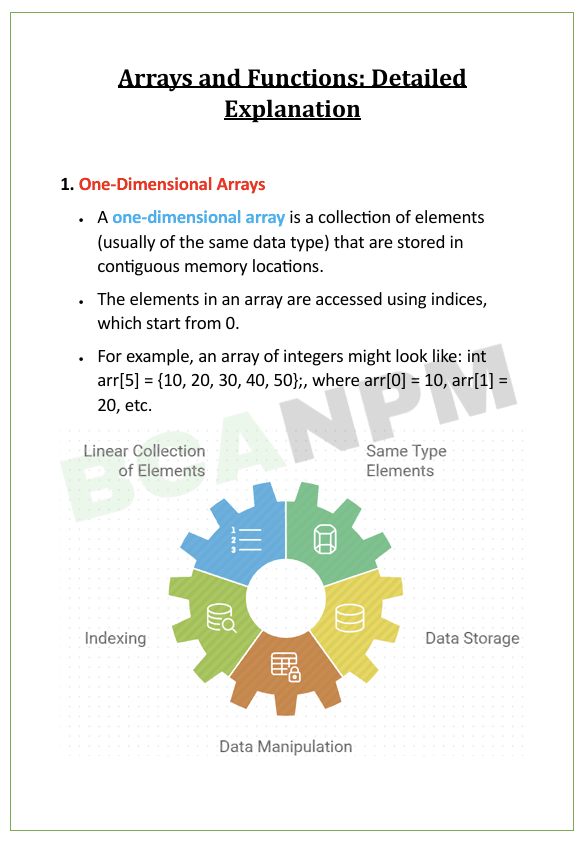
Unit 3: Arrays and Functions
“Arrays and functions” are fundamental concepts in programming. An array is a data structure used to store multiple elements of the same data type in a contiguous block of memory.
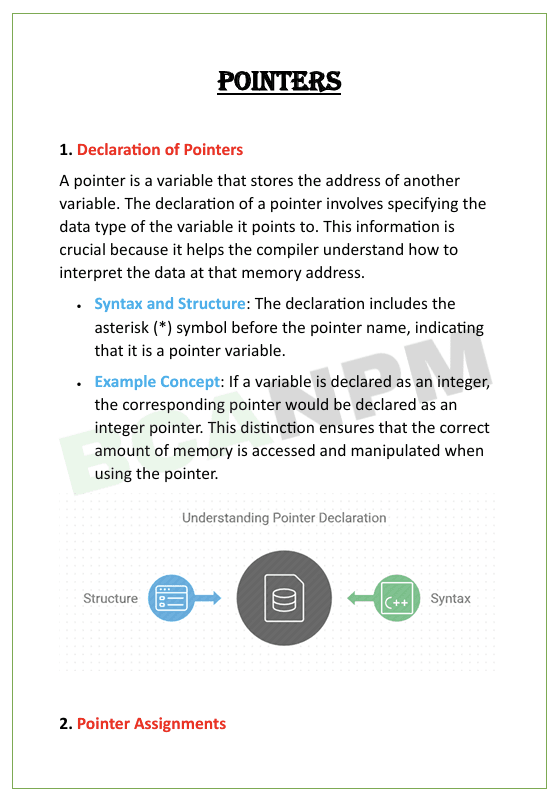
Unit 4: Pointers
“Pointers” are variables that store the memory address of another variable, allowing direct access and manipulation of memory.
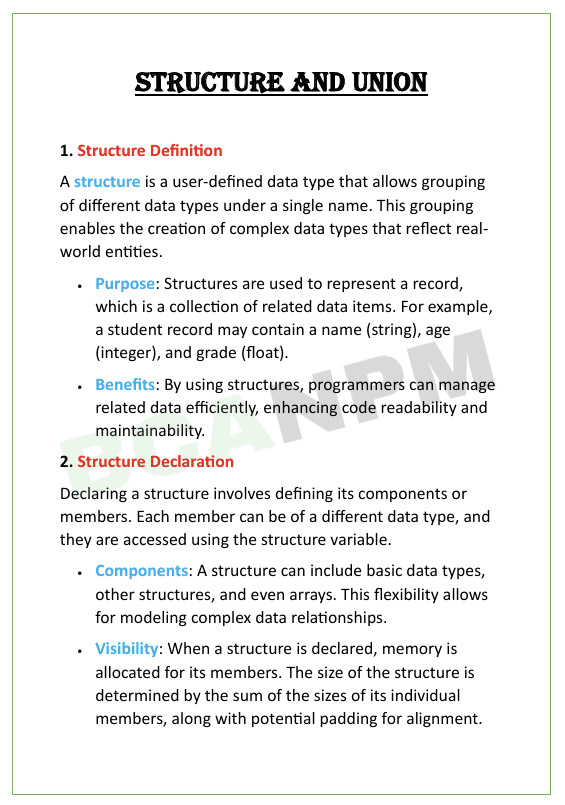
Unit 5: Structure and Union
“Structures and unions” are user-defined data types in languages like C and C++ that allow grouping different types of variables under a single name.
Syllabus of Programming Fundamentals using C
UNIT – 1
(a) Introduction to Programming and C Language:
Definition of programming, types of programming languages
Introduction to C – history, structure of a C program, compiling and executing a C program
Character set, keywords, identifiers, data types, constants, and variables
Operators and expressions – arithmetic, relational, logical, assignment, increment/decrement, conditional, bitwise
(b) Input and Output:
Formatted and unformatted input/output functions – scanf(), printf(), getchar(), putchar()
Escape sequences and format specifiers
UNIT – 2
Control Structures in C:
Conditional control – if, if-else, nested if, switch-case
Looping constructs – while, do-while, for loops
Jump statements – break, continue, goto, exit()
UNIT – 3
Functions and Arrays:
Functions – definition, declaration, calling, and recursion
Types of functions – user-defined, built-in
Call by value vs. call by reference
Arrays – single-dimensional and multidimensional arrays
Array operations – input/output, insertion, deletion, searching and sorting (basic concepts)
UNIT – 4
Strings and Pointers:
String handling – declaration, initialization, and standard functions (strlen, strcpy, strcat, strcmp)
Pointers – declaration, initialization, dereferencing
Pointer arithmetic, pointers with arrays and functions
UNIT – 5
Structures, Unions, and File Handling:
Structures – declaration, initialization, accessing members, array of structures, nested structures
Unions – difference between structures and unions
File handling – opening, closing, reading and writing to text files
File operations – fopen(), fclose(), fscanf(), fprintf(), fgetc(), fputc()